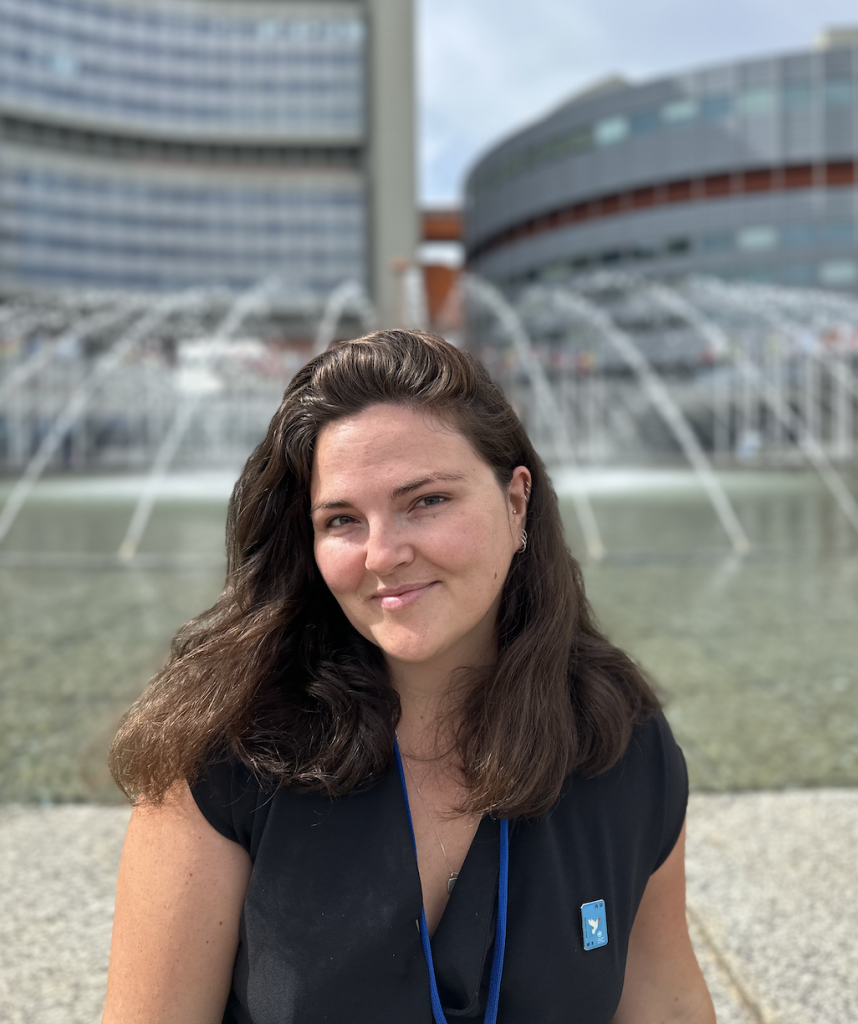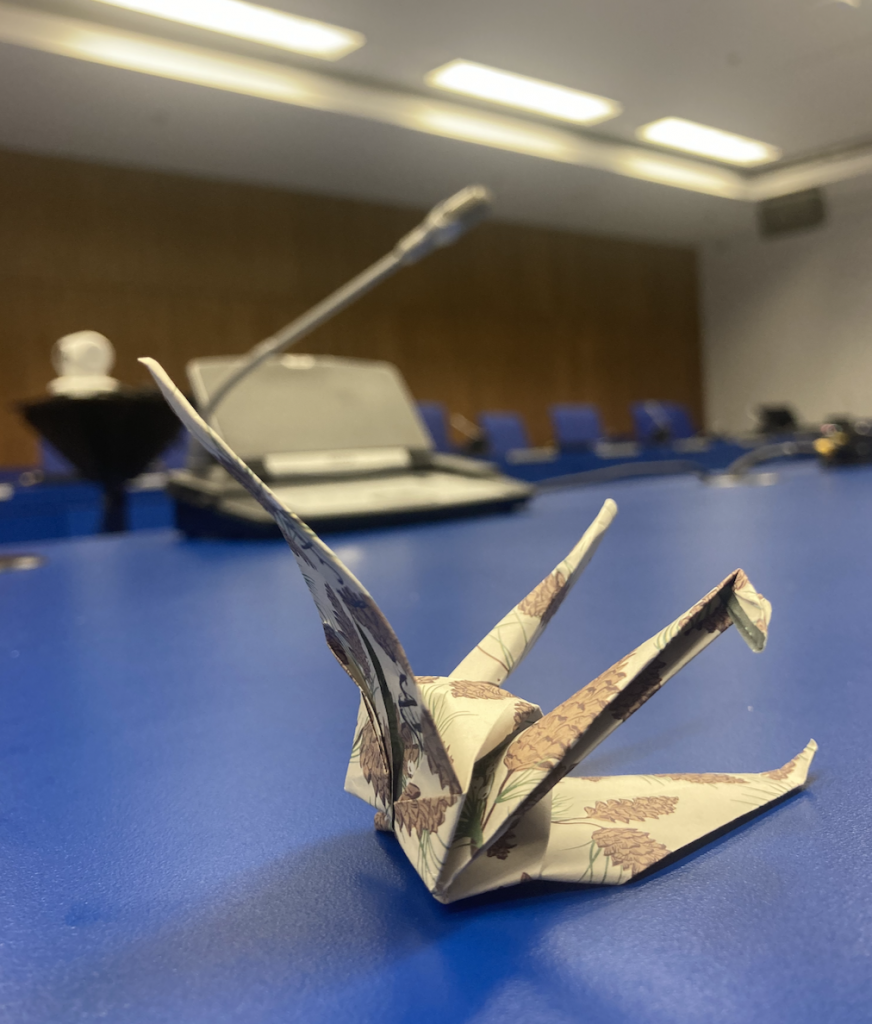By Michaela Higgins Sørensen, Campaign Manager of Docmine’s Nuclear Stories and Co-convenor of Youth Fusion
Editor’s note: As well as supporting journalists working in the news industry, Atomic Reporters also fosters citizen journalism, encouraging young people engaged in nuclear proliferation related issues to pick up the pen and report points of view that otherwise may not be shared. The following are reports from UNODA’s #Leader4Tomorrow, Vanda Proskova and Michaela Higgins Sorensen, who took part in the first meeting of the committee preparing the ground for the regular 2025 review of the Nuclear Non-Proliferation Treaty.

A generation who lived through the Cold War’s heart stopping moments, such as the Cuban Missile Crisis, dedicating their lives to nuclear abolition may ask where the nuclear disarmament youth are; why are young people only interested in climate action?
Such sentiments appear to be widely held. For instance, in a recent article in Politico, The Dangerous and Frightening Disappearance of the Nuclear Expert. The message is clear: young people are not interested in nuclear weapons issues.
However, contrary to this notion, young people do have a noteworthy presence in the nuclear disarmament space and were well represented in the NPT Prepcom in Vienna from July 31st to August 10th, 2023.
Representatives of the UN Office of Disarmament Affairs’ (UNODA) Youth4Disarmament and other young actors, displayed the remarkable vigour and drive young aspiring agents of change bring to the issue while simultaneously underscoring the systemic barriers threatening to extinguish their dedication.

Young advocates invigorate the peace, non-proliferation, and nuclear disarmament spheres with a renewed sense of purpose. Attend any nuclear disarmament conference and you will find them roaming the halls, speaking on various panels, representing their countries or NGOs, working together.
The Prepcom, for its young participants however, was a poignant mixture of hope and frustration. Hope because of the new life and resolute commitment to a more peaceful and sustainable world they breathe into such spaces, frustration because so many of them feel burned out, are severely underpaid, or not paid at all.
While the importance of getting young people engaged in discussions about the fate of nuclear weapons is widely acknowledged and applauded – after all, young people are their inheritors – it’s only lip service.
As it stands, there is no accompanying mechanism to sustain youth involvement. Apart from a few lucky young people who have managed to secure paid work, without financial support the rest of us occupy a precarious space.
As a whole, the structure of the nuclear disarmament field fails to offer young people a sustainable path forward. Amid economic insecurity and inflation, expecting us to bear the financial burden of remaining active in a field that urgently requires our input is unrealistic. Undoubtedly, underlying structural problems are the problem, not young people’s lack of interest.

Taylor Evans, a young person, previously in the aerospace field working with issues like nuclear defence strategies, succinctly captures the essence of the issue: “delving into the nuclear disarmament space feels like attempting to swim against a tidal wave with hands tied. This complex field demands specialised knowledge and access to classified information, putting up barriers that sadly limit the opportunities for those without privilege.”
Within high level bodies, such as the UN, that extol the virtues of inclusivity and diversity, it is disheartening to witness how young people are disappearing from the nuclear disarmament field. A UN internship is viewed by many as a foot in the door, a golden opportunity. However, moving to an expensive capital and self-funding yourself when you are young is nigh impossible. Most young people cannot enter, let alone sustain themselves in this field. Thus, our ‘disappearance’ is not due to lack of interest or capability.
So please don’t use young people as a scapegoat for the sorry state of affairs the nuclear disarmament field finds itself in. The question should not be asking the whereabouts of nuclear disarmament youth, but rather where are the spaces for them to thrive and flourish; the need is too urgent to neglect such spaces.
The opinions articulated above represent the views of the author.
Images: All © Michaela Higgins Sørensen
